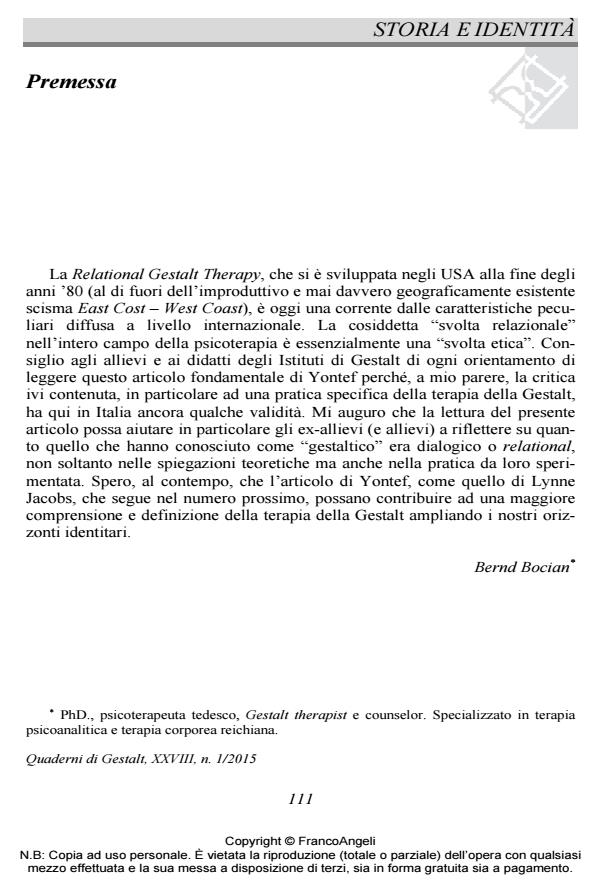The Relational Attitude in Gestalt Therapy Theory and Practice
Journal title QUADERNI DI GESTALT
Author/s Gary Yontef
Publishing Year 2016 Issue 2015/1
Language Italian Pages 19 P. 111-129 File size 108 KB
DOI 10.3280/GEST2015-001009
DOI is like a bar code for intellectual property: to have more infomation
click here
Below, you can see the article first page
If you want to buy this article in PDF format, you can do it, following the instructions to buy download credits

FrancoAngeli is member of Publishers International Linking Association, Inc (PILA), a not-for-profit association which run the CrossRef service enabling links to and from online scholarly content.
Gestalt therapy theory is relational in its core, although some talk and practice of Gestalt therapy is not consistent with the principles. This paper reviews core relational philosophical principles of Gestalt therapy: existential phenomenology, field theory, and dialogic existentialism. The implications for practice are explored. Practices and attitudes about Gestalt therapy that are inconsistent with these principles are discussed. The article studies the triggering and treatment of shame in Gestalt therapy and Gestalt training. The article clarifies what relational Gestalt therapy is and what it is not.
Keywords: Bracketing, dialogue, field theory, individualism and interdependence, metatheory, phenomenology, relational Gestalt therapy, shame, subtext, therapeutic relationship
Gary Yontef, L’atteggiamento relazionale nella teoria e nella pratica della terapia della Gestalt in "QUADERNI DI GESTALT" 1/2015, pp 111-129, DOI: 10.3280/GEST2015-001009